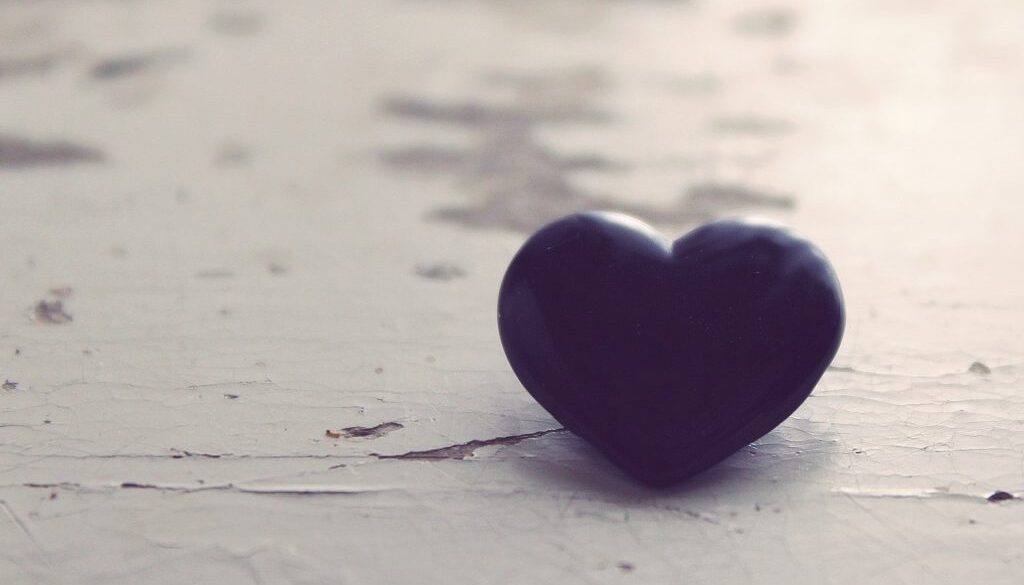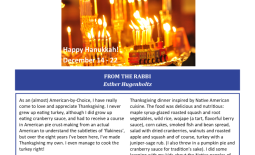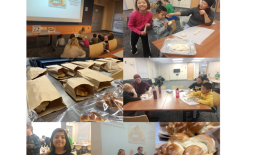The Exiled Heart
Rabbi Hugenholtz’s sermon for Parashat Bamidbar follows. This sermon was delivered on the 15th of May. Political and military developments in the Middle East may have surpassed some of the realities described in the sermon. Please keep in mind that the Rabbi’s sermon reacted to a ’snapshot-in-time’ moment. The Rabbi welcomes thoughtful conversations on the topic as we watch new developments unfold. May our prayer for peace be answered.
I come before you with a heavy heart. As you may suspect, I wanted to preach a different kind of sermon. In fact, any sermon but this one. I wanted to focus on matters very close to home; how we are gradually starting to reopen our synagogue for outdoors activities, how we are slowly starting to beat back the virus through vaccination and how I look forward to our Pre-Shavu’ot in the Park ice cream event on Sunday and outdoors worship in the future. Believe it or not, it would be comforting to wrap the blanket of the familiar around us. But that is not the moral juncture where we find ourselves.
Thousands of miles away from our immediate, local concern, is a country and a region in crisis; in the grips of renewed violence where the horrific count of casualties is rising relentlessly. Not just any country; the only Jewish country in the world—a mantle of great honor and responsibility. A Jewish country that many of us feel a visceral connection to. We may have family there; we may have celebrated a B-Mitzvah there, studied and gone to Yeshivah there, worked on a kibbutz, taken a congregational trip or perhaps dreamed of making aliyah and moving to live in Israel permanently. We have memories of the shuk of Machaneh Yehudah or the beaches of Tel Aviv.
That visceral connection might be complicated. We may declare pride in our support of the Jewish state, or we may wrestle with the implications of Jewish power. We may oppose the Occupation and donate to causes that protest it. We may disagree with the policies of any particular administration voted into the Knesset. We may support Israel advocacy here at home, vouching for a safe and secure Israel and struggle with the conflicting narratives that the media engages in. We may have strong, informed opinions and brandish those on our sleeves or feel that perhaps from so far away, we know too little to have a say.
This rich array of connections to Israel are like arteries pumping blood to the heart. Not every artery follows the same path or has the same purpose. Still, without glossing over real and profound differences, we all want the heart to beat vigorously in our collective chest. This Jewish heart of ours is, in the words of the late Rabbi David Hartman, ‘a heart of many rooms.’ It is the Medieval poet, Yehudah HaLevi who famously wrote from the far reaches of Spain: ‘libi bamizrach va’anochi b’sof ha’ma’arav’ – ‘My heart is in the east even though I am here in the farthest point of the west.’
What we feel in our hearts, in its many chambers, are deep truths, powerful convictions and valid fears. We gather here together to give space to that wide range of truths, convictions and fears. We cannot yet touch each other or hug each other, but as we sit here on Zoom, looking at each other’s faces, the faces of a congregation that has endured so much this past year, we sit with the fullness of community.
Israelis are dying. Israeli Palestinians are dying. Gazan Palestinians are dying. And our hearts are broken.
Every people has a right to dignity, democracy and self-determination.
Every people has a right to protest and peaceful resistance.
Every people has a right to self-defence when unlawfully attacked.
Every people has a right to live in their own homes in peace; to love their families in peace, to heal their sick in peace and bury their dead in peace.
This fundamental right belongs to the Jewish People. And it belongs to the Palestinian People.
These truths seem so self-evident, but as we have seen as of late, they are so fragile. These truths are easily hijacked by forces of hatred and political expediency; by rockets and riots, mob violence and religious fanaticism.
Today, we are not here to analyse the situation or to voice our opinions, but to hold space in that big collective heart of ours; to dwell in its many rooms, and to orient that heart to the East. It is true that we may in due course want to delve into the moral complexities and historical context of the Israeli-Palestinian conflict in our congregation. Perhaps we may want to have deep, honest, compassionate conversations on the topic in the future. Today, however, we sit Shivah, we pray, we reflect, we console, we help, we raise our hands for blessings of peace and hope of reconciliation. As Rabbi Vered Harris, a wise Israeli colleague of mine said:
‘I love Israel and the Jewish people enough to admit neither is perfect. I know no nation is perfect in the areas of civil and human rights. But some are better and some are worse and the moment when the house is burning is not the moment to ask if candles were left unattended. There are problems in Israeli society akin to open flames left unattended. And right now that matters far less than the fact that we want our homeland to stop burning so all its inhabitants: Jews and Arabs – can take the next steps to being safe in their homes.’
The first casuality of war is truth, as the dictum goes. Another casualty of war is the ability to keep open the many doors to this heart of many rooms. I am painfully aware that any words that any rabbi offers to their congregation will by their very nature be inadequate. I sit with that unease and its potential consequence. Yet, keeping our hearts open is the one thing all of us has control over; it is a universal mussar (virtue discipline) that we all can muster, irrespective of where we define ourselves along the lines of things that divide us.
In Parashat Bamidbar, we learn about the formation in which the Israelites marched; tribe by tribe, banner by banner. This timely and hauntingly military image can offer us a ‘nechemta’, a consolation. Each tribe had its own banner; and in the center of that formation was Torah. The banners, with their innate diversity and color, are in some sense the parochet, the coverlet of our Torah, and our hearts, and our hearts in turn must turn to that multifaceted and eternal Torah. The Torat chesed, the Torah of compassion, that charges us to be rodfei shalom, aggressive pursuers of peace.
I found a poem yesterday written by Ido Katz (and translated from the Hebrew by Joel Mosbacher) which I read out in its totality in the Kabbalat Shabbat service, but I want to share a snippet of it with you now:
‘And hasn’t the time long come
To trade missiles for missives
To remove the emergency stockpiles
To make targeted use of them…
To listen and not just respond
To let them sit inside
To sit, to ripen, to awaken
To touch the heart
To clarify and to combine.
To allow something else to emerge,
And truly, everything is possible,
It could be so different.’
In closing, I want to share not my insights, but make space for a deep, foundational, humanitarian truth; a story that unites our local, immediate concerns with our concerns for Israelis and Palestinians alike, and for all human beings the world over. It is a letter that Rosa Fink wrote. Rosa Fink is the daughter of Rabbi Dan Fink, the Rabbi from CABI, our friends in Boise, Idaho. Only a few degrees of (Zoom) separation from us all. I offer it to you:
A Letter to My American Friends:
I’m sitting in the stairwell of my Tel Aviv apartment building at 3am with the sound of rockets exploding above my head. At this moment I am not thinking about who is right or which side is evil. I’m thinking that a rocket will shoot through the side of my apartment. I’m exhausted from the sirens ringing throughout night. And I really, really have to pee.
As I pull out my phone and start scrolling Instagram, I see everyone posting on the conflict here, a subject that is so sensitive and so real for me. There’s an outpouring of strong opinions on the situation, filled with passionately-argued politics, some of which, in normal times, I share. Yet more often than not, these social media posts feel conditioned and predictable—and in this moment, they entirely miss the point.
When I see friends posting stories but not reaching out to ask if I’m okay, I start crying. I fear we have far too often removed compassion from our activism, the individual from the cause. This is not commentary on who is right and who is wrong. This is about the people caught in the middle. Everyone who was born and raised here, immigrants, refugees, everyone who has nowhere else to go. Think about human beings going through something you have probably never experienced. Let’s take this time to reach out to individuals who are affected by violence or oppression anywhere. Activism is important and necessary but let’s also remember to take care of one another.
I am sure many such letters have been written on many sides, including now. Many desperate prayers of peace sent up to that blue sky we all share. One day, we will move forward, to talk, think, act, engage, disagree. Today, we hold space in our exiled heart; this heart of many rooms.




